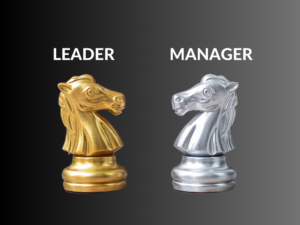Difference Between Confidence and Arrogance
Confidence and arrogance are often misunderstood and confused with each other. While both concepts involve a strong belief in oneself, there are significant differences that set them apart. In this article, we will explore the distinctions between confidence and arrogance.
What is Confidence?
Confidence is a positive and self-assured attitude that comes from believing in one’s abilities, skills, and knowledge. It is an inner strength that allows individuals to face challenges, take risks, and overcome obstacles. Confidence is rooted in a realistic understanding of one’s strengths and weaknesses.
Examples of Confidence:
- A speaker confidently delivering a speech in front of a large audience.
- An athlete believing in their training and performing exceptionally well in a competition.
- A student feeling confident about their preparation and acing an exam.
Uses of Confidence:
- Boosts self-esteem and self-worth.
- Enhances performance and productivity.
- Increases motivation to take on new challenges.
What is Arrogance?
Arrogance, on the other hand, is an exaggerated belief in one’s superiority and abilities. It often involves a condescending attitude towards others and a disregard for their opinions and feelings. Arrogant individuals tend to overestimate their own importance and underestimate the abilities of others.
Examples of Arrogance:
- A person constantly interrupting and talking over others during a conversation.
- An executive who disregards input from their team members and assumes their ideas are always superior.
- A celebrity who belittles their fans and acts entitled.
Uses of Arrogance:
- Creates a barrier to effective communication and collaboration.
- Leads to a negative perception by others.
- Causes strain in relationships.
Differences Between Confidence and Arrogance:
| Difference Area | Confidence | Arrogance |
|---|---|---|
| Belief in oneself | Based on realistic knowledge and skills | Exaggerated and inflated self-worth |
| Interaction with others | Respectful and open-minded | Dismissive and condescending |
| Response to criticism | Open to feedback and willingness to learn | Defensive and unwilling to accept criticism |
| Focus on personal growth | Strives for continuous improvement | Assumes already being the best |
| Impact on relationships | Builds trust and fosters positive connections | Creates distance and causes conflicts |
| Receptiveness to different perspectives | Open to considering diverse opinions | Believes their viewpoint is always superior |
| Recognizing and acknowledging limitations | Acknowledges own weaknesses and seeks improvement | Denies weaknesses and overstates abilities |
| Effect on personal growth | Encourages growth and learning | Stunts personal growth due to lack of self-reflection |
| Impact on team dynamics | Fosters collaboration and effective teamwork | Creates a hierarchical and toxic work environment |
| Perception by others | Seen as confident and inspiring | Seen as arrogant and off-putting |
Conclusion:
Confidence and arrogance are considerably different. While confidence empowers individuals to thrive, grow, and build positive connections, arrogance hampers personal development and damages relationships. Understanding the distinctions between confidence and arrogance is crucial for personal and professional success.
Knowledge Check:
- Which of the following statements about confidence is true?
- Confidence is based on exaggerated self-worth.
- Confidence leads to strained relationships.
- Confidence stems from realistic knowledge and skills.
Answer: c. Confidence stems from realistic knowledge and skills.
- How does arrogance affect teamwork?
- Arrogance fosters collaboration and effective teamwork.
- Arrogance creates a hierarchical and toxic work environment.
- Arrogance encourages personal growth and learning.
Answer: b. Arrogance creates a hierarchical and toxic work environment.
- What is the main difference between confidence and arrogance in response to criticism?
- Confidence is defensive and unwilling to accept criticism, while arrogance is open to feedback.
- Confidence is open to feedback and willingness to learn, while arrogance is defensive.
- Both confidence and arrogance are defensive and unwilling to accept criticism.
Answer: b. Confidence is open to feedback and willingness to learn, while arrogance is defensive.
- … (continue with the remaining questions)
Related Topics:
- Difference between Self-esteem and Arrogance
- Importance of Humility in Leadership
- Building Healthy Relationships


